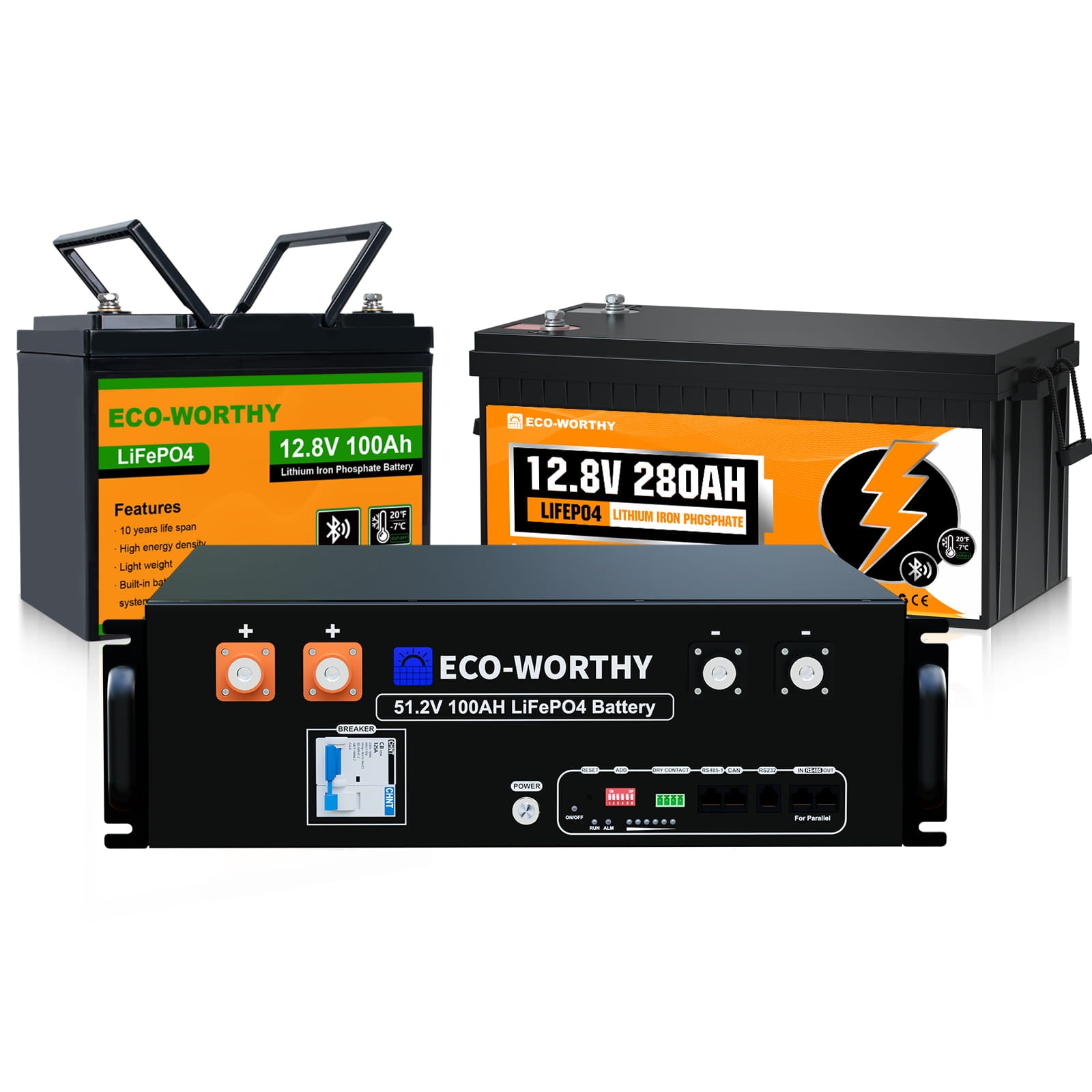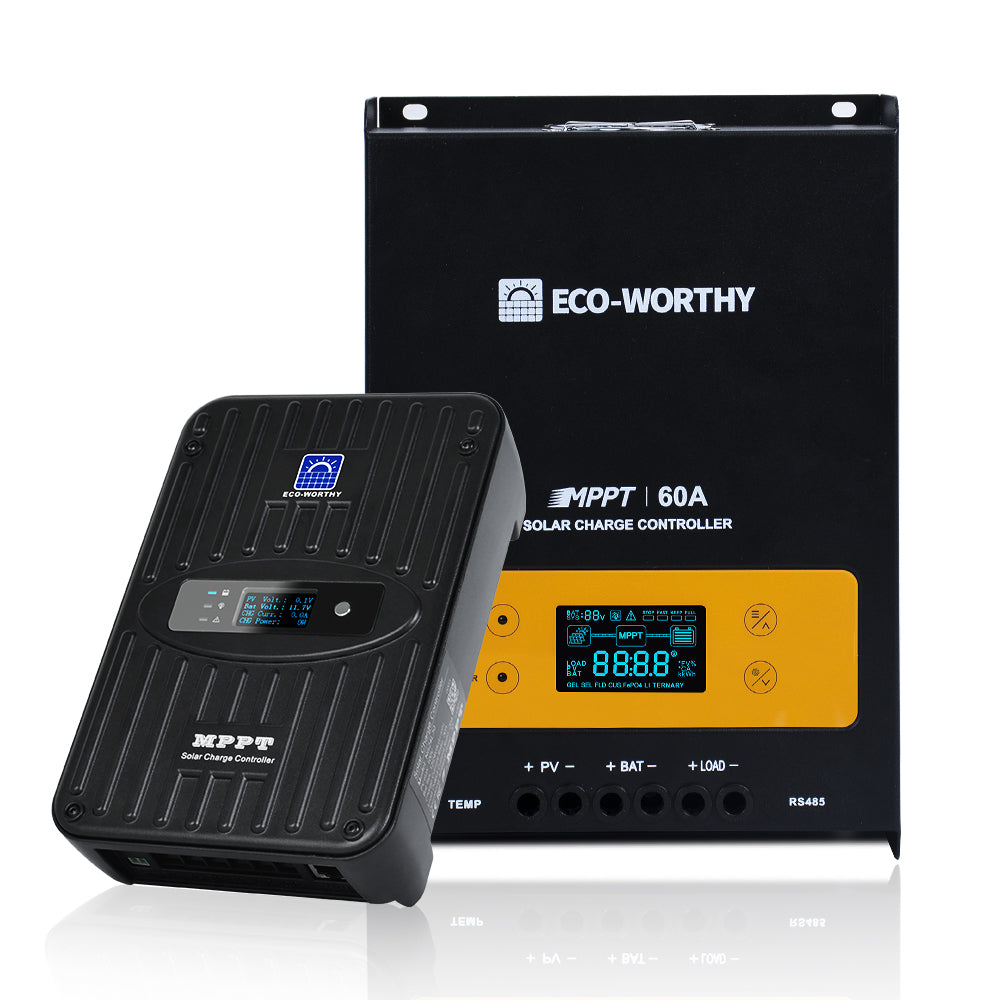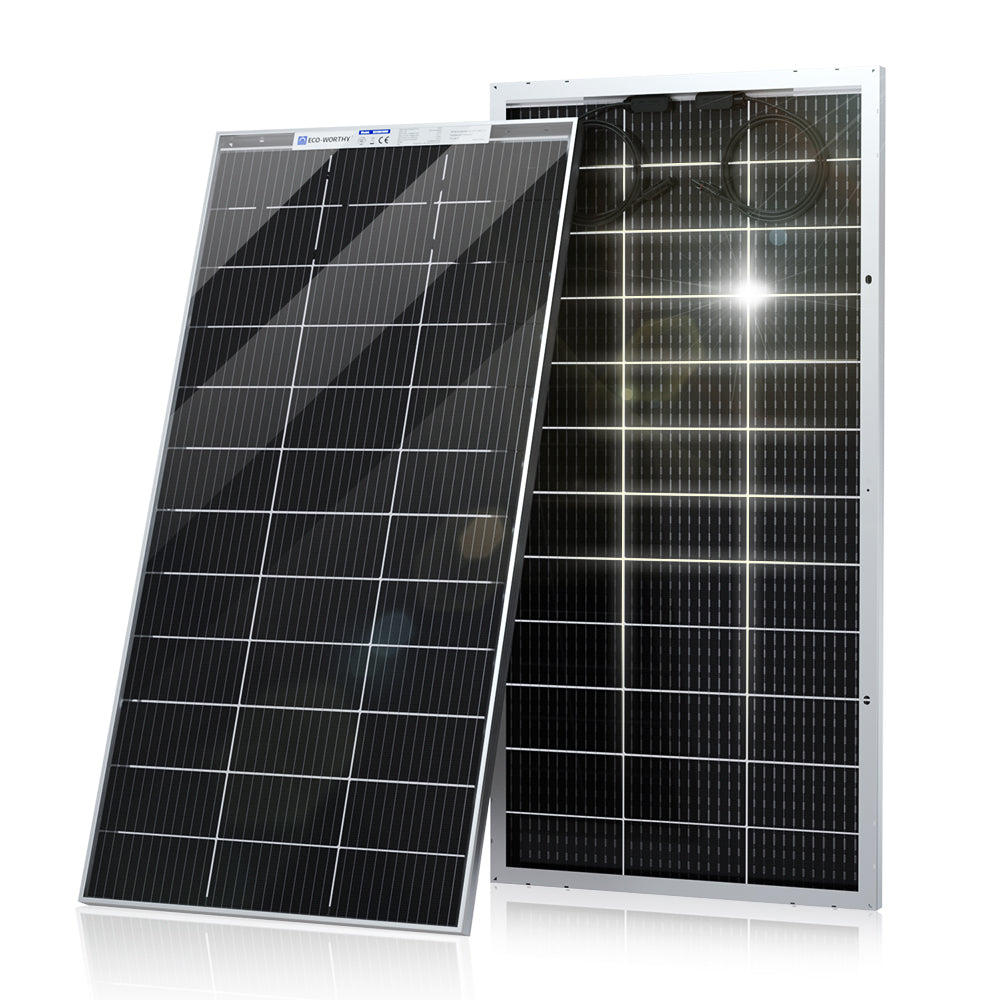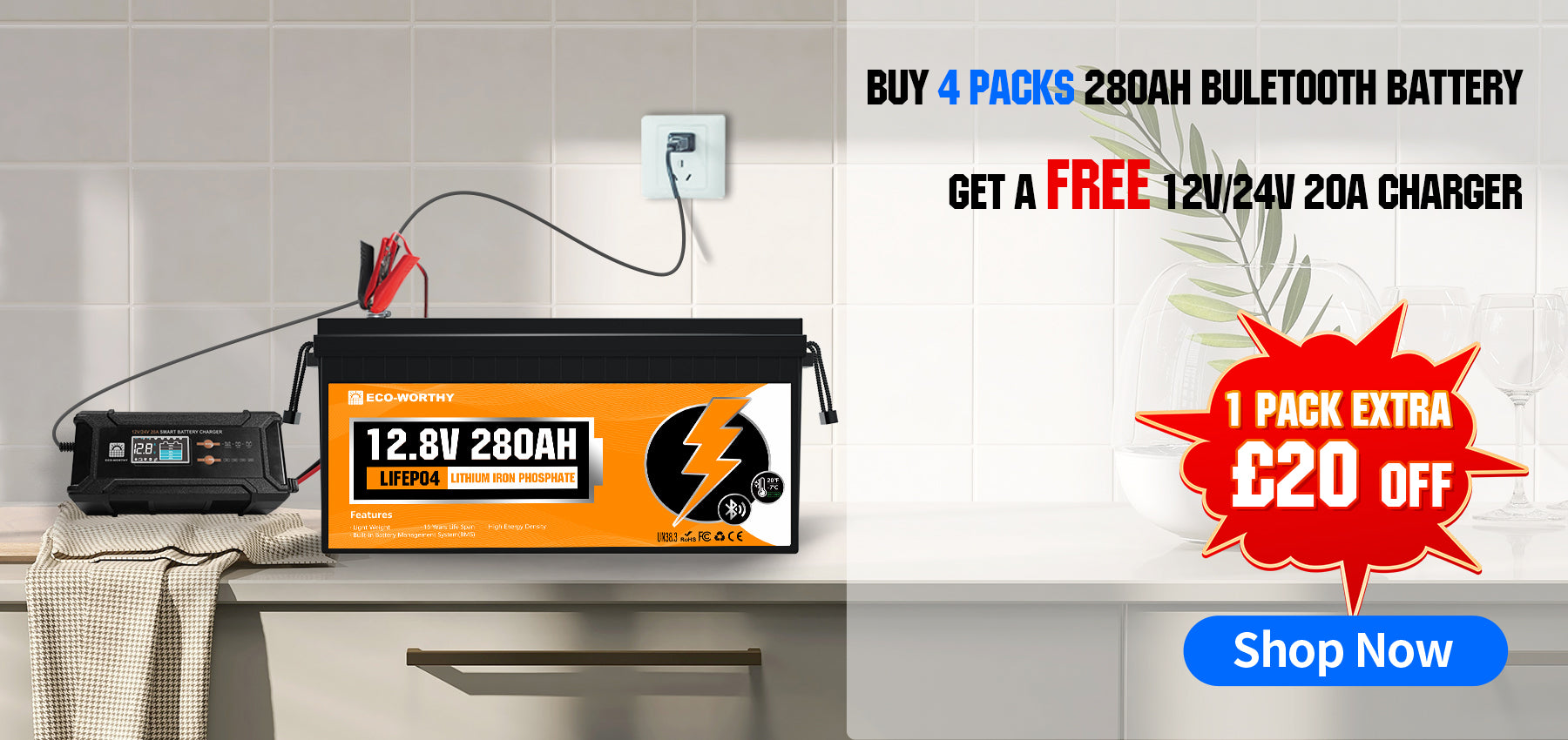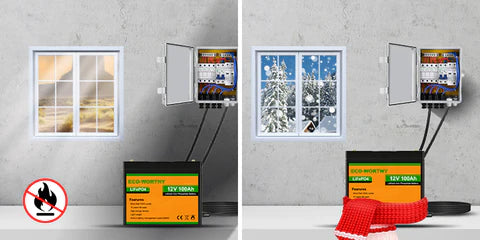Have you noticed your phone or campervan battery doesn't last as long as it used to? This is all about lithium batteries, which power most of our devices today. These batteries come in different types, like lithium-ion for phones and LiFePO4 for campervans. How long they last depends on many things, including how you use and charge them. In this guide, we'll explain how lithium batteries work and how to make them last longer. This information will help you keep your devices running well and avoid buying new batteries too often. Whether you're a tech expert or just want your gadgets to work better, understanding battery life is important in our world of portable devices.
Fundamentals of Lithium Battery Life
To understand how long lithium batteries last, we need to know the basics. This includes the different types of lithium batteries and some key ideas about how they work.
Types of Lithium Batteries
- Lithium-Ion (Li-ion): These are the most common. You'll find them in phones, laptops, and many other portable devices. They store a lot of energy for their size and last a decent amount of time.
- Lithium-Polymer (LiPo): These are similar to Li-ion but can be made in different shapes. They're often used in thin devices like some tablets and high-end phones.
- Lithium Iron Phosphate (LiFePO4): These are often used in bigger things like electric cars and solar energy storage. They last a long time and are very safe.
- Lithium Titanate (LTO): These aren't as common but can charge very quickly and last for many charges. They're used in special cases where fast charging is important.
Key Concepts in Battery Life
To really understand battery life, you need to know these important terms:
Charge Cycles
A charge cycle happens when you use all of a battery's energy, even if it's not all at once. For example, using half the battery twice counts as one cycle. Most lithium batteries can handle hundreds or thousands of cycles before they start to wear out.
Battery Capacity
This is how much energy a battery can hold. It's usually measured in milliamp-hours (mAh) or amp-hours (Ah). A higher number means the battery can power a device longer before needing to be recharged. Capacity gets lower as the battery gets older and is used more.
Energy Density
This tells you how much energy a battery can hold compared to its size or weight. It's usually shown as watt-hours per kilogram (Wh/kg) or watt-hours per liter (Wh/L). Higher energy density means more power in a smaller battery, but sometimes these batteries don't last as long or might not be as safe.
How Long Different Types of Lithium Batteries Last
Lithium batteries come in several types, each with its own expected lifespan. Here's a breakdown of how long different lithium batteries typically last:
1. Li-ion Batteries: 2-5 Years
Li-ion batteries are common in many devices. Cylindrical cells, often found in laptops, typically last for 300-500 charge cycles or about 2-3 years. Prismatic cells, used in smartphones, can achieve 500-1000 cycles. These numbers can change based on usage and care.
Consumer-grade Li-ion batteries usually last 2-3 years with regular use. Industrial-grade versions can last 3-5 years or more, thanks to better construction and materials.
2. LiPo Batteries: 2-3 Years
LiPo batteries in smartphones and tablets generally last 2-3 years or about 300-500 charge cycles. In hobbyist applications like drones, they might not last as long because of heavy use.
Their lifespan can vary greatly depending on usage conditions. Very hot or cold temperatures, charging habits, and rapid power drain can all make them wear out faster.
3. LiFePO4 Batteries: 5-10 Years
LiFePO4 batteries last longer than other types. In renewable energy systems, they often work well for 5-10 years or 2000-5000 cycles. When used in electric vehicles, they can keep over 80% of their capacity even after 2000 cycles.
These batteries last longer because their chemistry is more stable. They also handle temperature changes better than other lithium batteries.
In real use, batteries often don't last as long as companies claim. This is due to factors like weather, charging habits, usage patterns, and storage conditions. For example, a Li-ion battery rated for 1000 cycles might only achieve 600-800 in normal use. But LiFePO4 batteries usually come closer to their rated lifespan due to their more stable chemistry.
What Affects How Long Lithium Batteries Last
Several factors can significantly influence the lifespan of lithium batteries. Understanding these can help you make your batteries last longer.
1. Charging Habits
How you charge your battery greatly affects its lifespan. Partial charges are better than full ones, so try to keep your battery between 20% and 80% charge. It's best to avoid letting your battery drop to 0% or stay at 100% for long periods. When your device is fully charged, unplug it. Constantly keeping a battery at 100% charge can reduce how long it lasts overall.
2. Temperature Effects
Temperature plays a big role in battery life. The best temperature range for lithium batteries is between 20°C to 25°C (68°F to 77°F). Heat above 35°C (95°F) can damage the battery quickly, while temperatures below 0°C (32°F) can reduce battery capacity temporarily. To protect your battery, avoid parking your campervan in very hot or cold places for long periods.
3. Usage Intensity
The way you use your campervan's electrical systems affects battery life. Heavy use, like running air conditioning or multiple appliances at once, wears out batteries faster than light use, such as just using lights or charging small devices. Using high-power devices while the battery is charging can generate extra heat, which is bad for the battery. Running too many electrical systems at once can drain the battery quickly and, over time, reduce its overall lifespan.
How to Make Your Lithium Battery Last Longer
You can greatly extend your lithium battery's life with some simple care. Here are key ways to keep your battery healthy and working well for a long time:
1. Charge Smartly
Try to keep your battery between 20% and 80% charged. Don't always charge to 100%. Unplug your device when it's fully charged. If you can, set up alerts on your phone or tablet to remind you when to unplug. Charging a little bit more often is better than letting the battery run very low before charging.
2. Keep It Cool
Batteries don't like extreme heat or cold. The best temperature for your battery is between 20°C to 25°C (68°F to 77°F). In a campervan, use window shades to keep the inside cool on hot days. If it's very hot or cold, take portable devices with you when you leave your campervan.
3. Use Power Wisely
Don't run too many things at once, especially power-hungry devices like air conditioners. Instead of using AC, try opening windows or using a small fan when possible. Turn off lights and devices when you're not using them. If your campervan has solar panels, try to use more power during sunny hours.
4. Store Properly
If you're not using a device for a long time, charge the battery to about 50% before storing it. Keep it in a cool, dry place. Check on stored batteries every few months and charge them back to 50% if needed.
5. Check Regularly
Once a month, check if your battery is working well. Clean the battery connections to keep them free of dirt and rust. If you notice your battery isn't holding charge as well as it used to, it might be time for a check-up.
6. Upgrade When Needed
Consider adding a battery management system to your campervan. This helps prevent overcharging and can make your battery last longer. If you use a lot of power, think about getting a second battery for high-power tasks.
Make Your Batteries Last Longer
Taking good care of your lithium batteries helps them work better and last longer, especially in campervans. Charge them between 20% and 80%, keep them away from very hot or cold places, and use power carefully. Turn off things you're not using and choose energy-saving devices when you can. These simple steps will keep your batteries healthy for years, saving you money and hassle. Start using these tips today, and your batteries will be ready for many adventures to come.


